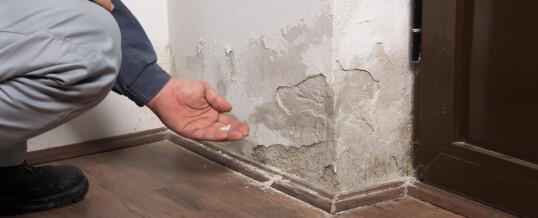
Did you know that approximately 15% of construction workers reported laying down concrete foundations while waiting for supplies to frame the house? Supply chain demands have impacted the construction field and homeowners.
New homes with concrete foundations are prone to minor wall cracks, but what are the signs of significant foundation damage? Your home’s value on the market is impacted by foundational damage, and luckily, there are a few key points you can start checking for today.
Are you still interested? We have put together a complete guide on foundation damage types, solutions, and how much it will cost, so keep reading for more information!
Types of Foundation Damage
Your home’s foundation is what the entire structure of your house rests on. Minor foundation cracks and problems result in larger issues that quickly increase costs.
In general, the majority of foundational problems are from the water. Too little or too much water can cause the soil to shrink or expand, which shifts your foundation. Here are some top types of foundation damage:
- Buckling foundation walls
- Honeycombing
- Cracks
- Sinking
- Wall rotation
- Wall fissures
Even issues such as leaking pipes can be indicative of bigger problems. Before letting these problems take a back burner, call the experts for a professional opinion.
Wall Rotation
Wall rotation happens when there is too much water in the soil underneath your foundation. When this occurrence happens, the outer edge of your home’s foundation sinks deeper into the soil than the inside portion. As you can likely picture, this causes the inside edge to turn upwards, creating a wall rotation.
How do you fix rotating or bowed walls? Typically, wall anchors are used and reinforced with galvanized steel rods. This is an intensive procedure that helps stabilize your home’s foundation.
Shifting Foundation
A shifting foundation can lead to cracks, bowing walls, and misaligned doors. Some of the leading causes of a shifting foundation include:
- High and low soil moisture levels
- Poorly compacted soil
- Tree roots
- Older homes
- Water leaks
- Poor drainage
A shifting foundation requires drilling steel piers or other options into the soil and stabilizing your foundation. A simple way to avoid this problem is waterproofing your basement, which can help prevent leaks and water damage. During basement waterproofing, professionals can install appropriate drainage systems and assess if your home is at risk of poor drainage.
Wall Fissures
Wall fissures or cracks can indicate more extensive problems such as foundation failure or a shifting foundation. Small hairline cracks above doors are usually harmless and caused by the house settling. Older homes and vacation houses that are rarely used are prone to cracks that may not indicate foundation damage.
Small plaster cracks you can usually fix on your own with a putty knife, joint compound, mesh tape, and sander. Larger cracks or diagonal ones are a tell-tale sign of structural concerns.
Structural engineers or other professionals are likely needed at this point. Larger cracks can also lead to water leaking through, staining the wall next to it.
Identifying Large Foundation Cracks
When water settles into your basement, you can risk larger foundation cracks, water damage, and mold. There are three main types of serious foundation cracks, including:
- Vertical
- Horizontal
- Diagonal
Usually, there are signs of problems before these cracks appear, such as sticky windows and doors or uneven floors. Vertical cracks are commonly seen in new homes and are similar to hairline cracks. It is likely due to your house settling, and you should wait at least a year after building your house before fixing them in case others pop up.
Horizontal cracks are more serious and indicate one of two problems:
- Shifting foundation
- Water damage
If you start noticing horizontal cracks, call a professional immediately. Diagonal cracks can be serious if they are left for long periods. These cracks indicate problems with the house’s construction or poor water drainage.
At Armored Basement Waterproofing, we bypass simple polyurethane products to cover foundation cracks. Instead, we use four steps to fix foundation cracks:
- V-groove crack
- Seal with hydraulic cement
- Cover with Heavy Duty Armored Vinyl
- Add pressure relief drain system (if needed)
The addition of the Heavy Duty Armored Vinyl helps prevent future leaks, and adding a pressure relief drain system redirects water away from your foundation and soil.
Foundation Failure
Foundation failure happens when your doors or windows stop functioning correctly, you notice plumbing damage, or there is a structural risk. You might even see damage to your framing.
Cosmetic damage is one of the first signs of foundation failure. This is the step you want to start addressing the problem through fixing foundation cracks or installing a drain. Once you have structural damage, the cost of repair starts rising significantly.
Foundation Damage Cost
Unfortunately, foundation damage costs fluctuate based on the damage, labor, and extent of repair. On average, foundational repairs cost or home renovation projects average $10,000.
Luckily, more minor cracks will cost you much less. Keep in mind – the type of soil, additional structures, and adding drainage systems affect your final price tag. You should also factor in the region you live in and contact a professional company for a quote before.
Don’t Wait To Stop Foundation Damage
Foundation damage can cost you thousands of dollars if you don’t act immediately. If you are unsure whether your foundation cracks are significant or not, call a professional service to come to take a look.
As the old saying goes – an ounce of prevention is worth a pound of cure.
What are you waiting for? If you have cracks or water seeping into your basement, Armored Basement Waterproofing can help you out. Contact us today and ask about our foundation repair and waterproofing costs.
ShareMAR
